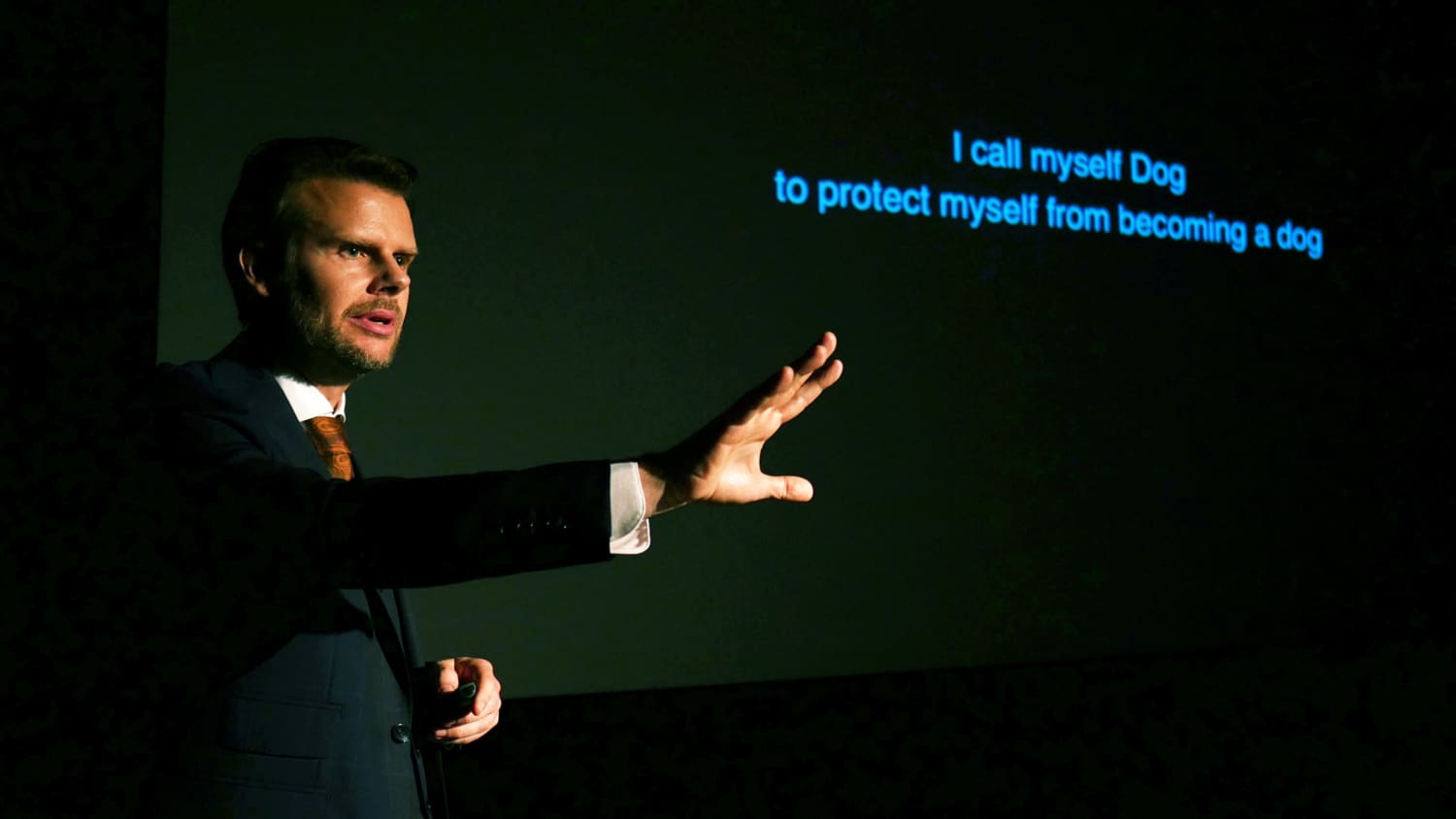ENSAYOS and The Wild Living Marine Resources Belong to Society as a Whole present BELONG TO: Friday 13.12.2019 at 7 pm, Kunstnernes Hus Kino.
THE ELEPHANT WHO WAS A RHINOCEROS is a lecture-performance by Erik Bünger that traces the footprints of wolves, elephant, bears and ravens as they move perpetually in and out of human language. A creature that does not speak, a creature you cannot speak of. An elephant in every room. A white bear, whose silhouette looms larger with every effort to keep it out of your mind.
ERIK BÜNGER
Erik Bünger is an artist, writer and composer, whose work investigates the relationship between language and concepts such as ‘voice’, ‘body’, ‘image’ and ‘nature’. In performance lectures, videos, and texts he explores how such concepts, by referring to something mute and unspeakable beyond the reach of language, become central voids around which our reality is built up. His lecture performances have been presented around the world in venues such as Centre Pompidou in Paris, The Wellcome Collection in London, The Lincoln Center in New York, KW in Berlin and The Curitiba Biennial in Brazil. In 2018, his debut book, The Elephant Who Was a Rhinoceros was published on RpB Verlag (Cologne).
ABOUT THE EVENT SERIES:
The Wild Living Marine Resources Belong to Society as a Whole is a series of interdisciplinary events at Kunstnernes Hus, organized by Geir Tore Holm, Søssa Jørgensen and Randi Nygård, as part of Ensayo#4. The events have been named after section 2 of the Norwegian Marine Resources Act and will be based on the legal text, divided according to its wording. The words are starting points for walks, film screenings, lectures and discussions.
The project relates to the law not only with the usual legal definitions but also with a more poetic and fundamental approach. It examines different ideas about the environment and our role in nature, our management of natural resources, responsibilities, views on nature, language and values. It seeks to present alternative views and experiences. We need to better understand ourselves as integrated parts of both the natural cycles and societal structures and we need to see nature as part of society to find new and better ways of organizing our communities.
Derrida writes, in “The Animal That Therefore I Am”, that thinking about the animal, if there is such a possibility, must derive from poetry. So, if we want to see plants and animals as part of our society and democracy, and ourselves as part of nature, then it can not happen only with our rationality, but also in emotional, poetic and intuitive ways.
The project is supported by Fritt Ord and Arts Council Norway.

